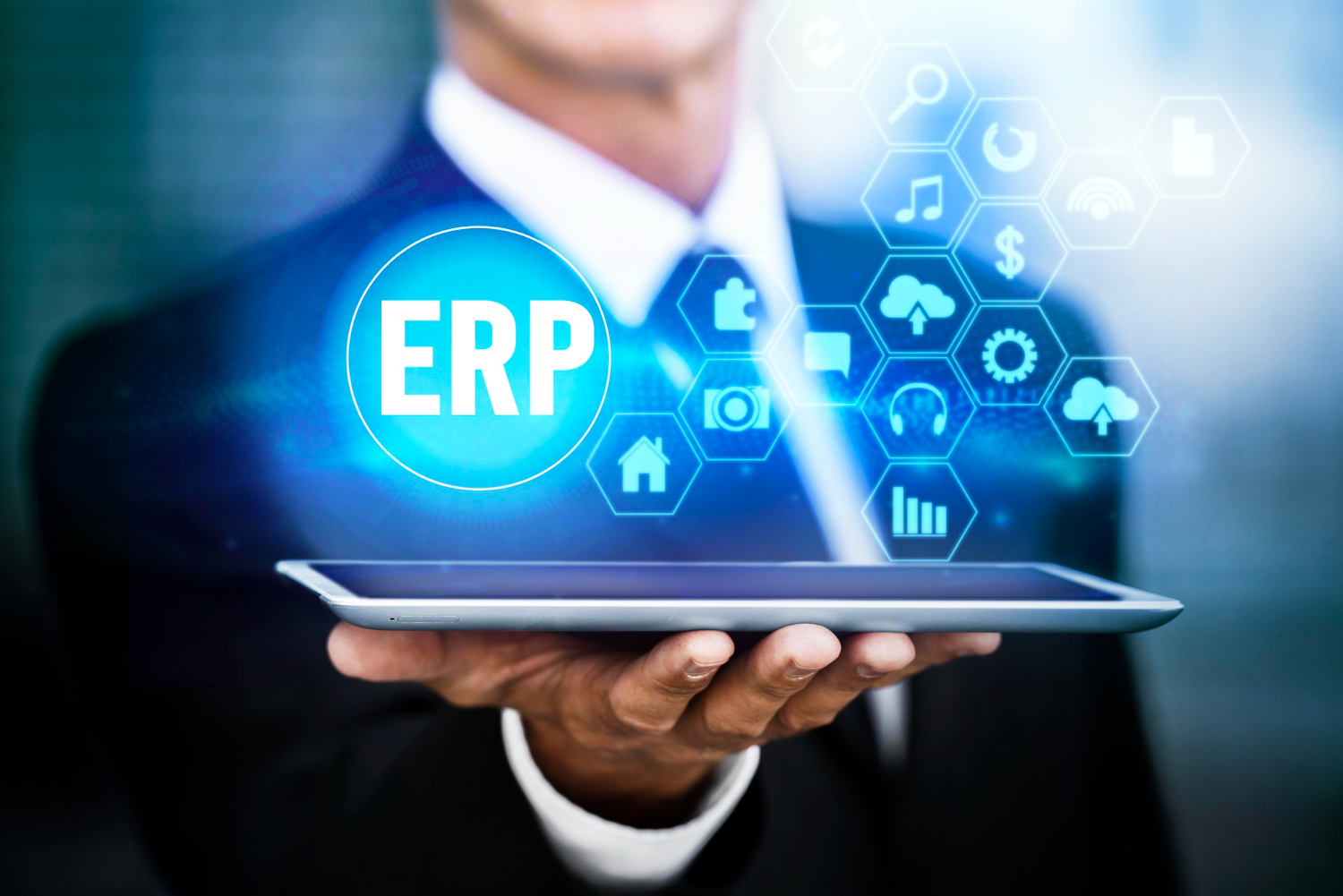Efficiency is needed for the success of any modern business. Organizations need thorough tools to streamline operations and maximize productivity to stay competitive and thrive. This is where Enterprise Resource Planning (ERP) services come into play.
Read on to understand the core features of ERP services, their components, and the diverse benefits they offer businesses of all sizes.
What Are ERP Services?
ERP services contain integrated applications to manage and automate core business processes. ERP systems provide a centralized platform that enables seamless communication and data sharing across various departments within an organization.
Categories of ERP Systems
ERP systems are grouped into different classifications to match the needs of various businesses. Let’s explore these categories:
Tier I ERP Systems
These are tailored for large multinational corporations. They are equipped to handle complex international operations, including managing various currencies, languages, and accounting standards.
Tier II ERP Systems
Tier II systems are designed for mid-sized enterprises with operations spanning multiple locations or regions. While they may not be as robust as Tier I systems, they offer comprehensive features to support business processes efficiently.
Tier III ERP Systems
Targeted at small to medium-sized businesses, Tier III ERP systems offer essential functionalities to streamline operations. Although they may not support as many languages or currencies as Tier I or II systems, they provide adequate support for local or regional businesses.
Cloud-Based ERP Systems
Cloud-based ERP systems offer the flexibility of accessing data and applications online. They eliminate the need for on-premise infrastructure and provide scalability and cost-effectiveness for businesses of all sizes.
On-Premise ERP Systems
On-premise ERP systems are installed and maintained on the company’s servers and infrastructure. While they may require more upfront investment and IT resources, they offer greater control and customization options for businesses with specific requirements or compliance needs.

Components of ERP
ERP systems consist of several integrated modules, each catering to specific organizational functions. Let’s understand the key components of ERP and explore how they contribute to optimizing business operations:
Human Resource Management (HRM)
ERP systems include modules for managing employee information, payroll, recruitment, onboarding, training, and performance evaluation. This component streamlines HR processes, enhances employee engagement, and ensures compliance with labor regulations.
Customer Relationship Management
CRM modules within ERP systems enable businesses to track customer interactions, manage sales pipelines, automate marketing campaigns, and provide superior customer service. Organizations can personalize interactions, identify sales opportunities, and build lasting client relationships by centralizing customer data.
Supply Chain Management
SCM components facilitate the optimization of supply chain processes, including stock management, procurement, logistics, and distribution. ERP systems offer real-time visibility on supply chain operations, allowing businesses to minimize costs, reduce lead times, and enhance efficiency.
Financial Management
ERP systems include modules for managing financial transactions, budgeting, forecasting, accounts payable, accounts receivable, and general ledger. These components provide accurate financial reporting, ensure regulatory compliance, and support informed decision-making by financial stakeholders.
Manufacturing and Production Management
Manufacturing companies can benefit from the production planning, scheduling, inventory control, quality management, and shop floor operations modules provided by ERP systems. It can assist in cutting waste, raising productivity, and improving product quality through manufacturing process optimization.
ERP System Features
Implementing an ERP system can significantly transform how a business operates with its system features:
Integration
One of the key features of ERP systems is their ability to integrate various business functions into a unified platform. This integration eliminates data silos, enhances collaboration, and provides a holistic view of organizational operations.
Automation
ERP systems automate repetitive tasks, reducing manual effort and minimizing errors. Automation streamlines business processes, improves efficiency, and allows employees to focus on value-added activities.
Data Analysis
Businesses can extract valuable insights from massive datasets using powerful data analysis tools from ERP software. By examining trends, patterns, and performance data, companies may drive strategic objectives and make well-informed decisions.
Reporting
ERP systems generate comprehensive reports and dashboards that give stakeholders real-time visibility into key performance indicators (KPIs) and business metrics. These reports enable data-driven decision-making and facilitate continuous improvement.
Tracking and Visibility
With ERP systems’ end-to-end visibility into corporate operations, companies can track and monitor activities in real time. This visibility makes proactive decision-making, bottleneck identification, and improved operational efficiency possible.
ERP System Benefits
ERP solutions offer various benefits to businesses, revolutionizing their operations and enhancing overall efficiency. Let’s explore some of these advantages:
Streamlined Processes
ERP systems integrate various business processes into a unified platform, eliminating redundancy and streamlining operations. This leads to increased efficiency and productivity across the organization.
Centralized Data Management
Enterprise resource planning software centralizes all data related to different departments, functions, and processes within the organization. This centralized database ensures data consistency, accuracy, and accessibility, enabling better decision-making.
Improved Visibility
ERP systems provide real-time insights and visibility into business operations, allowing managers and stakeholders to monitor performance metrics, track progress, and make informed decisions promptly.
Enhanced Collaboration
ERP solutions promote cooperation and communication among various teams and departments. This supports collaboration across functional boundaries, the sharing of knowledge, and teamwork.
Increased Customer Satisfaction
With access to comprehensive customer data and insights, ERP solutions enable businesses to deliver personalized and responsive customer service. This results in higher customer satisfaction, loyalty, and retention rates.
Cost Savings
ERP systems automate manual tasks, streamline processes, and reduce operational inefficiencies, leading to significant cost savings over time. Businesses can lower operating expenses and improve profitability by eliminating redundant activities and optimizing resource utilization.
Regulatory Compliance
By imposing defined procedures, guaranteeing data correctness, and enabling audit trails and reporting, ERP software assists companies in maintaining regulatory compliance. This lowers the possibility of fines and legal problems for noncompliance.
Scalability
Because of ERP solutions’ scalability and flexibility, businesses can adjust to shifting market conditions, industry trends, and development prospects. ERP systems can grow with the company, add more users, or integrate more modules to meet changing demands.
Strategic Decision-Making
ERP systems empower executives and managers to make strategic decisions based on actionable insights and trends by providing comprehensive data analytics, reporting tools, and business intelligence capabilities. This enables businesses to stay ahead of the competition and capitalize on growth opportunities.

